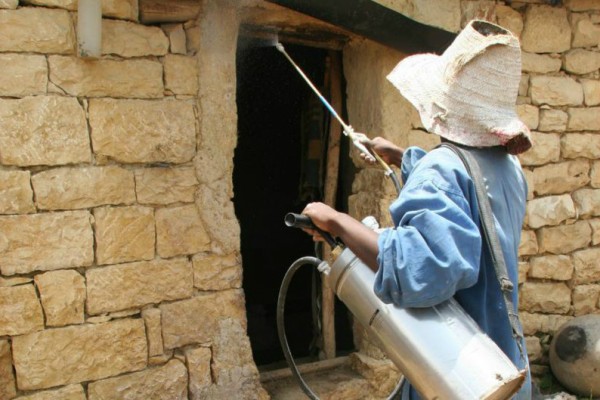On World Malaria Day, the Johns Hopkins Bloomberg School of Public Health Center for Communication Programs (CCP) is pleased to share the results of a new study that examines indoor residual spraying (IRS) to prevent malaria in Zanzibar and mainland Tanzania. IRS is a useful tool for reducing malaria transmission and is generally effective for three to six months. The findings are published in the Malaria Journal.
Michelle Kaufman, Research and Evaluation Officer at CCP and lead author of the study, explained, “This study is unique because it examines the beliefs of both acceptors and refusers of IRS. While prior studies may have measured overall acceptance of IRS, they haven’t fully examined reasons for refusal. In order for IRS to be effective, at least 85% of a community must be covered. We were therefore interested in why people refuse in addition to why people accept IRS so as to capitalize on those factors in our community mobilization activities.”
This study shows that although only a small percentage of the population refuses IRS, reasons for refusal are important, ranging from ignorance about the reasons for IRS and uncertainty about its effectiveness and potential side effects including infertility, to embarrassment about moving poor quality possessions out of the house and belief that the spray is politically motivated.
Despite some misconceptions surrounding IRS in Tanzania, acceptance is very high and continues to increase as positive results become apparent. Study participants recommended that public education campaigns that target the community and sprayers, in addition to official sanction from community leaders could increase IRS acceptance further.
Authors of the article include Kaufman, Datius Rweyemamu, Hannah Koenker and Jacob Macha.





